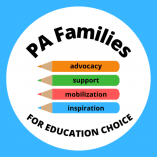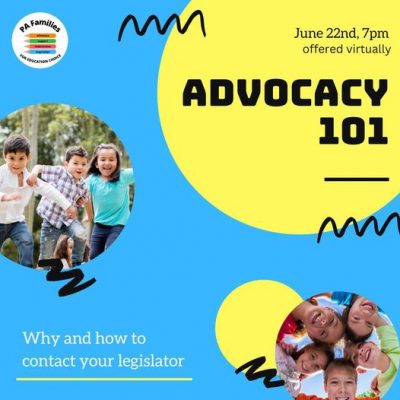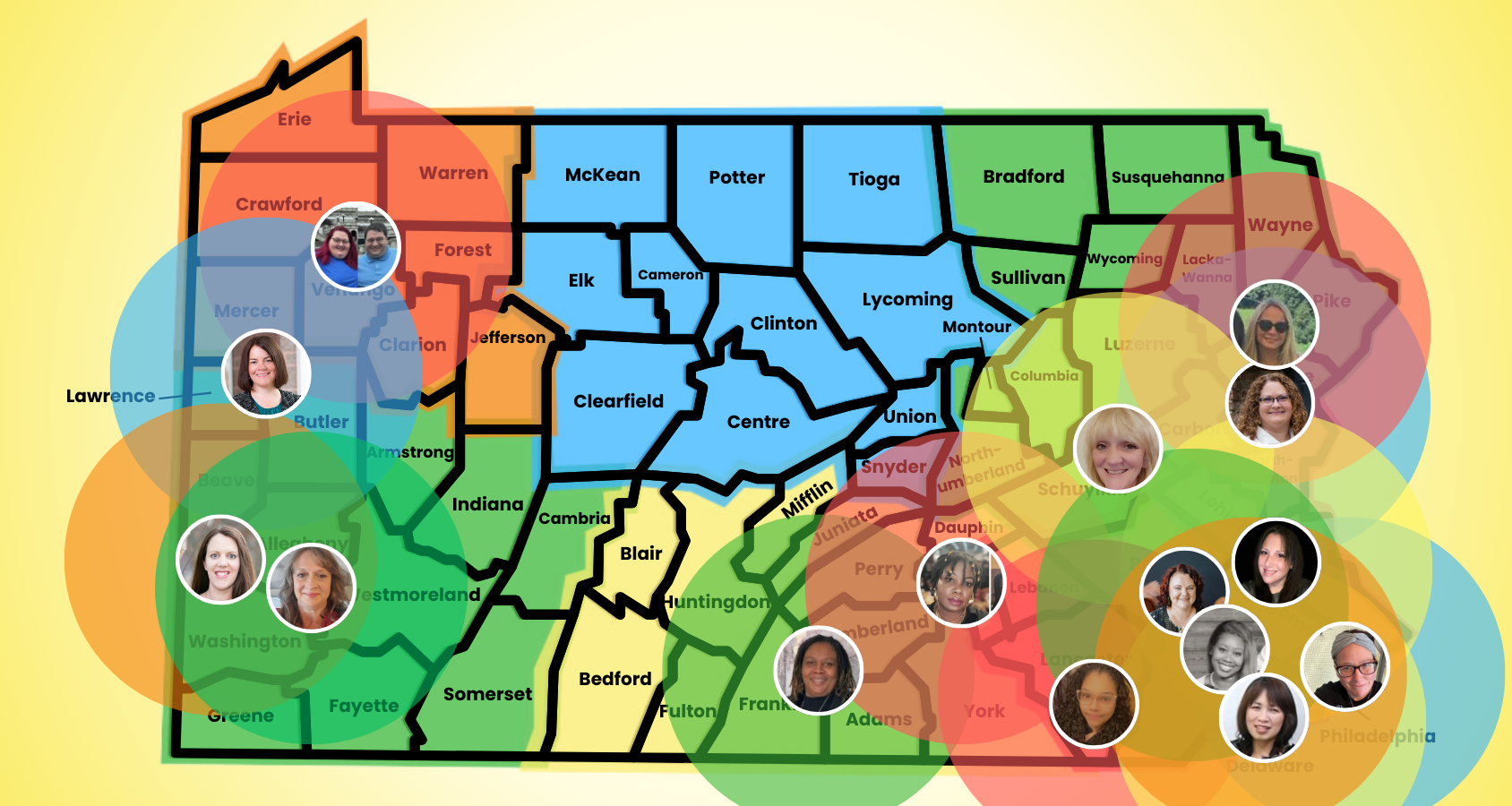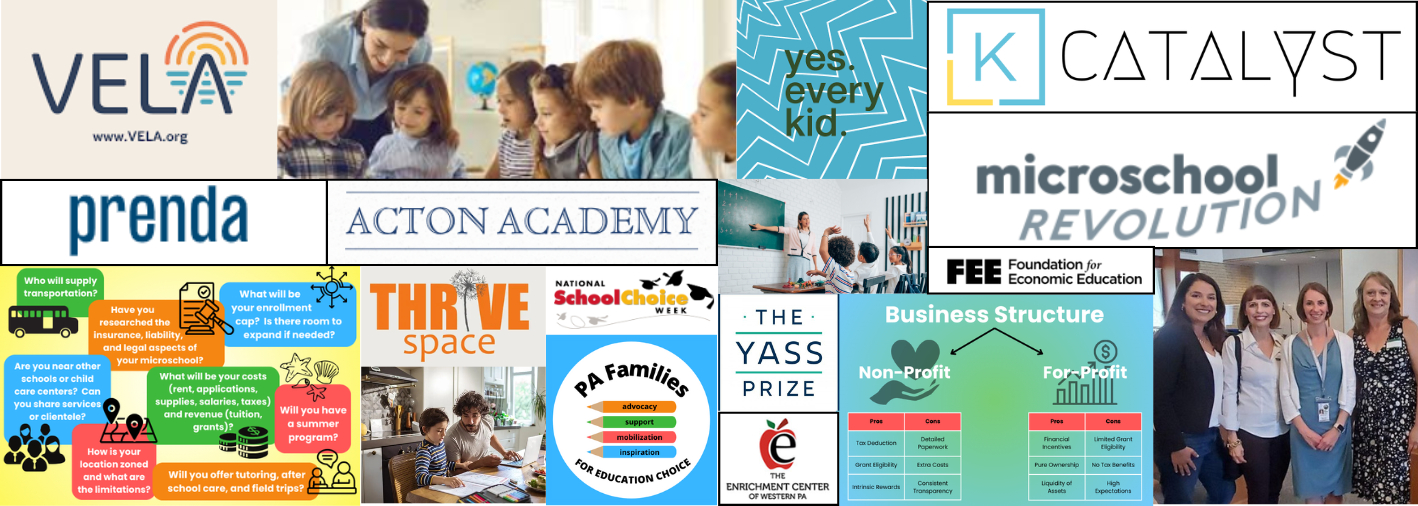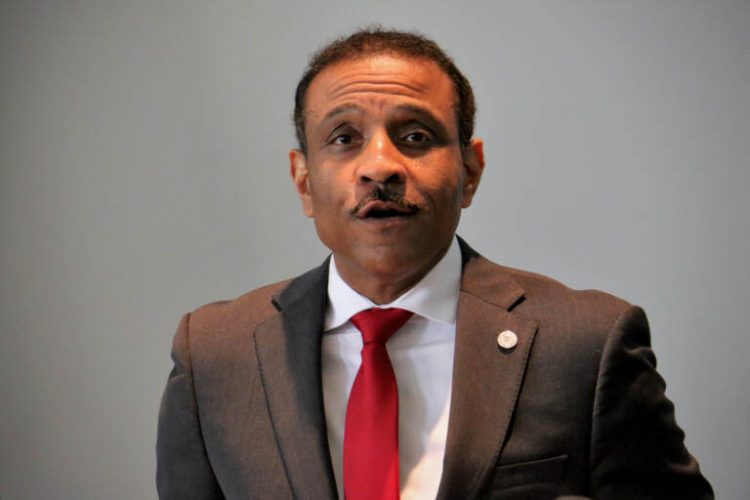Articles
“Too Many Schools Are Misdiagnosing Dyslexia”
“On reflection, though, Odegard says there was perhaps one benefit to his early educational struggles. ‘If there was any gift I got from dyslexia, it was to have a lot of compassion and empathy,’ he asserts, ‘because I could never hide in school that I couldn’t read and spell.’ That early feeling of powerlessness fueled his interest in studying child psychology in college and graduate school, he says: ‘My own loss of agency and helplessness led me to want to find a way to give children a voice.'”


“Budget or not, structured literacy program still on the table“


“The state’s stalled budget negotiations left many other proposals on hold, including a bipartisan plan to increase childhood literacy.”
“Students are struggling to read — we must help them”


“After Mississippi’s literacy program was passed in 2013, the state rose from 49th in fourth grade reading to 21st in the nation…North Carolina students in kindergarten through fourth grade made greater mid-year gains than students in other states using the same assessment, with the percentage of kindergarten students meeting the benchmark almost doubling, from 28% to 56%.
“Those are the kind of results Pennsylvania families deserve, and we can’t afford to wait.”
“Ortitay, Fleming Introduce Legislation to Add Educational Tools to Increase Early Literacy in PA”


“At a Capitol press conference… Reps. Jason Ortitay (R-Washington/Allegheny) and Justin Fleming (D-Dauphin) unveiled legislation built on last year’s efforts to advance early literacy in Pennsylvania.”
“Reps. Jason Ortitay and Justin Fleming: Early literacy legislation must be advanced”


“By providing support for early literacy development, House Bill 998 has the potential to make a meaningful difference in the lives of countless Pennsylvania children and ensure that they are able to reach their full potential.”
“Philly superintendent promises to end ineffective programs as part of strategic plan“
“When it comes to improving academics, Watlington said he plans to learn from other successful states and districts…he wants to adopt consistent teaching strategies district-wide to ensure all students are improving and pointed to Mississippi’s focus on the science of reading as something all teachers, and by extension students, could benefit from.”
“While board members and other speakers supported Watlington’s calls for data and science-backed approaches, some cautioned against a one-size-fits-all approach. In response, Watlington said he’s committed to figuring out the balance between district oversight and ‘academic freedom’ at the school level.”
AskExcelinEd
How Can States Fix
America’s Reading Problem?
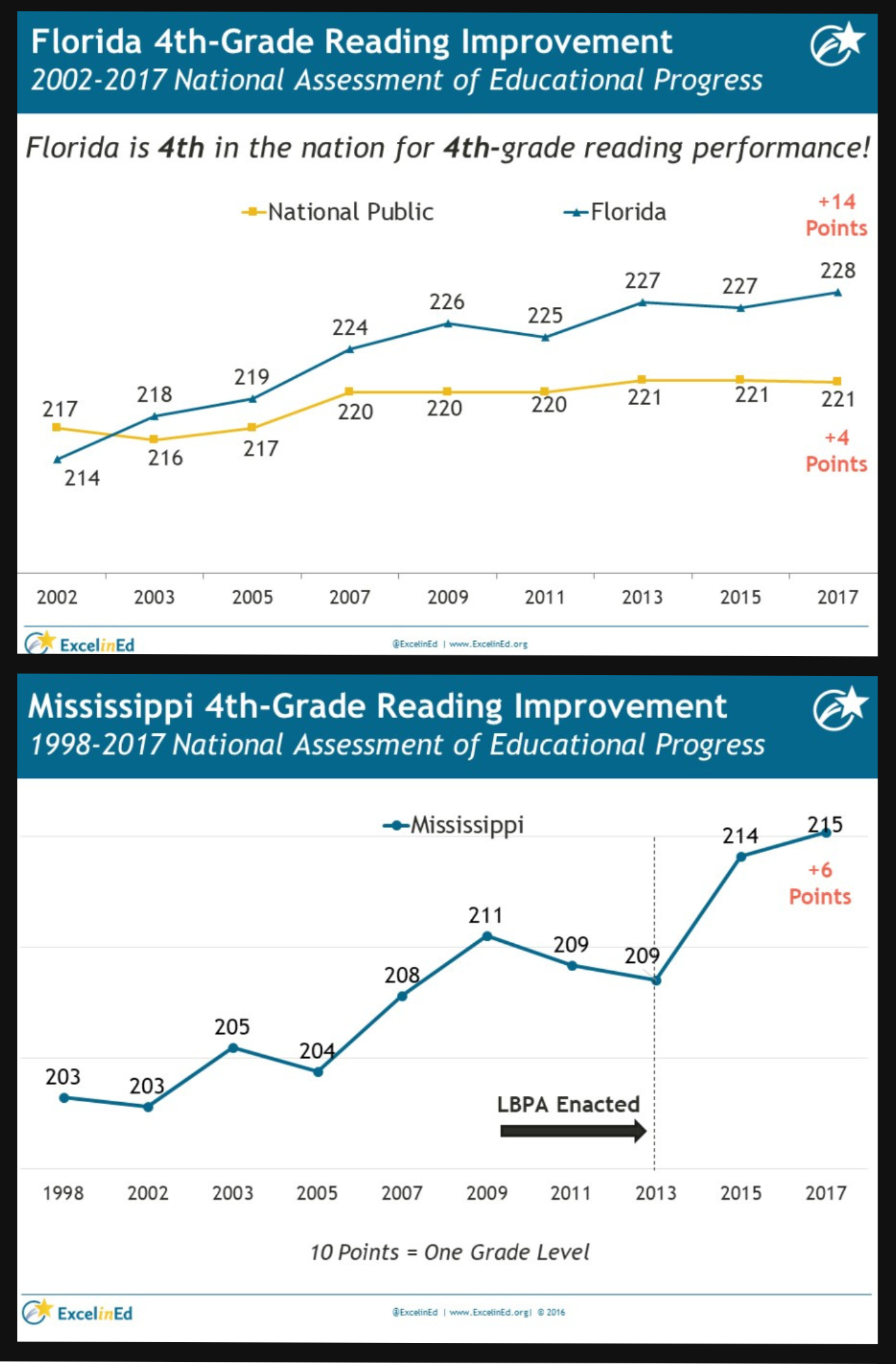

“Last week, we answered the question Why Can’t Millions of Kids Read? and reviewed scientifically-based reading instruction. In this post, we’ll examine how two states, Florida and Mississippi, are working to fix America’s reading problem.”
Why Can’t Millions of Kids Read?
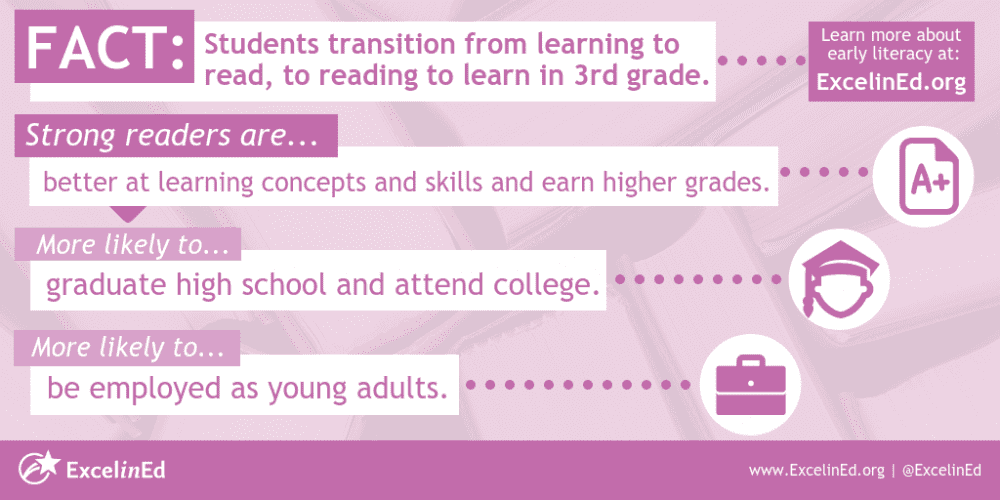

“The National Assessment of Educational Progress (NAEP) reveals that 63 percent of American fourth-graders are not proficient readers.
“Nearly all kids can become strong readers if they are taught the right way.
“So, why aren’t all kids learning to read?”
How can states ensure students are reading on grade-level?
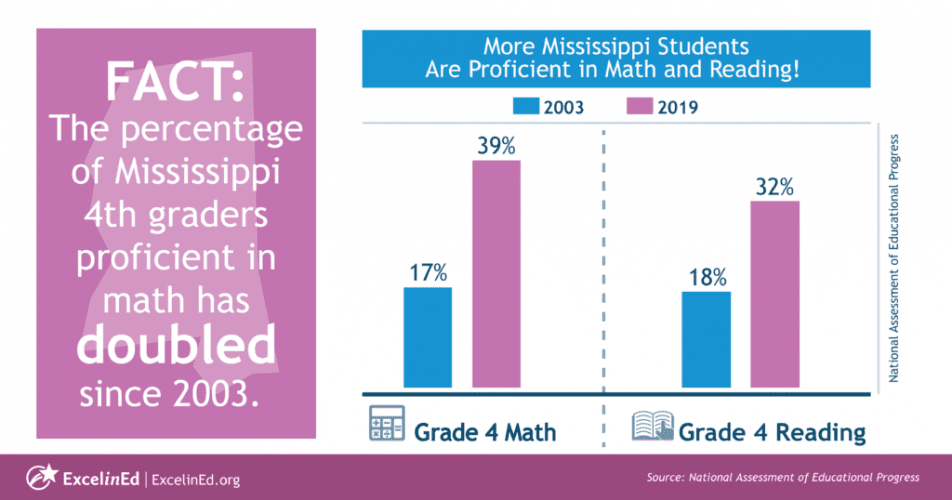

“You know the story of Dorothy from Kansas—how a young girl and her flawed companions set out on the yellow brick road to meet the wish-granting Wizard of Oz. Along the way, the travelers face their greatest fears and overcome issues with the road itself. But they persevere, and their journey on the yellow brick road reveals that together they have the strength, courage and intelligence necessary to reach their goals.”
